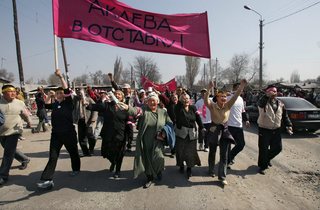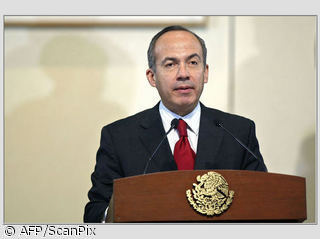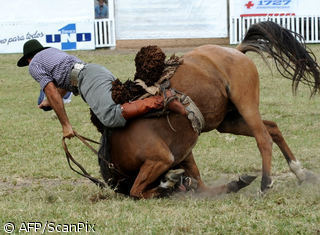A discussion is under way inside the European Union as to how many years are required before its new members will match the living standards prevailing in the rest of the now 25-nation EU
Published:
12 August 2004 y., Thursday
A discussion is under way inside the European Union as to how many years are required before its new members will match the living standards prevailing in the rest of the now 25-nation EU. Many economists predict that even those new members that have relatively strong economies will require at least 30 years to reach the per-capita income levels prevailing in Western Europe.
Of the new EU members, Slovakia and three Baltic states are generally considered to be the fastest-growing economically. Each of them aspire to match the achievement of one of the oldest members of the EU, Ireland, which in the 1990s registered economic growth rates averaging over eight percent.
Willem Buiter, chief economist at the European Bank for Reconstruction and Development in London, says Ireland is a worthy model for the new EU members.
"Ireland has done it. From being a poor west European country they are now a rich west European country, richer than the average west European country and richer even than Britain," he said. "But they had a number of factors working for them that are not present in Eastern Europe, the main thing being the demographics."
Barbara Boettcher, an economist at Deutsche Bank in Frankfurt, agrees that the Ireland model won't be easy to emulate.
"You won't see that in Eastern Europe," she said. "Eastern European countries, which are designed to be winners are those that have attracted a large share of the production oriented foreign direct investment, like Slovakia, Hungary and the Czech Republic have done."
Šaltinis:
voanews.com
Copying, publishing, announcing any information from the News.lt portal without written permission of News.lt editorial office is prohibited.
The most popular articles
 Civil unrest in Kyrgyzstan last week left over 70 people dead, more than 1500 injured and over 500 hospitalized.
more »
Civil unrest in Kyrgyzstan last week left over 70 people dead, more than 1500 injured and over 500 hospitalized.
more »
 After lots were drawn, ten winners of Danske Bankas scholarships and one winner of an iPod shuffle player were established.
more »
After lots were drawn, ten winners of Danske Bankas scholarships and one winner of an iPod shuffle player were established.
more »
 The health of Chinese civil rights activist Hu Jia is causing real fears after reports that the winner of the Parliament's 2008 Sakharov human rights prize is ailing with liver disease.
more »
The health of Chinese civil rights activist Hu Jia is causing real fears after reports that the winner of the Parliament's 2008 Sakharov human rights prize is ailing with liver disease.
more »
 Nestled in the northeast plains of India, Bihar is one of the poorest states in the country. Its per capita income is just a fraction of that in other Indian states.
more »
Nestled in the northeast plains of India, Bihar is one of the poorest states in the country. Its per capita income is just a fraction of that in other Indian states.
more »
 One day after a 7.2 magnitude earthquake rattled the Mexico-California border area, Mexico‘s President visits one of the affected areas.
more »
One day after a 7.2 magnitude earthquake rattled the Mexico-California border area, Mexico‘s President visits one of the affected areas.
more »
 Roma communities, the European Union’s largest ethnic minority, continue to face persistent discrimination and segregation.
more »
Roma communities, the European Union’s largest ethnic minority, continue to face persistent discrimination and segregation.
more »
 This the sound of spring for many in Latvia. With a little guidance from their parents, children at the Riga Zoo made bird boxes in anticipation of the returning migrating birds.
more »
This the sound of spring for many in Latvia. With a little guidance from their parents, children at the Riga Zoo made bird boxes in anticipation of the returning migrating birds.
more »
 Economic shocks are taking a toll on a population already facing high risks in low-income countries: children.
more »
Economic shocks are taking a toll on a population already facing high risks in low-income countries: children.
more »
 As celebrations for Easter week get under way millions of the faithful will be heading to Churches across Europe to mark the crucifixion and resurrection of Christ.
more »
As celebrations for Easter week get under way millions of the faithful will be heading to Churches across Europe to mark the crucifixion and resurrection of Christ.
more »
 More than 200, 000 riders and their horses are in Uruguay’s capital for South America’s largest rodeo.
more »
More than 200, 000 riders and their horses are in Uruguay’s capital for South America’s largest rodeo.
more »